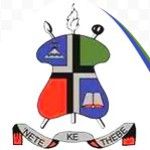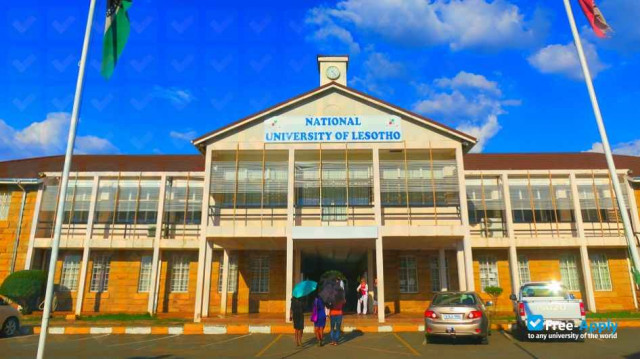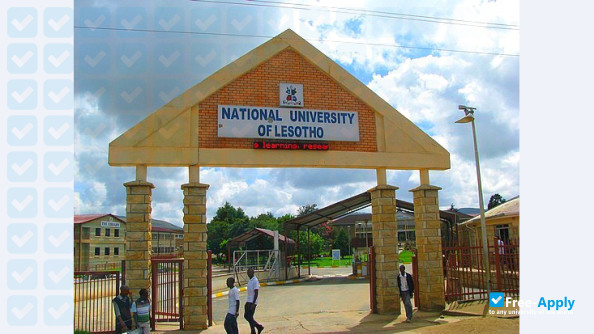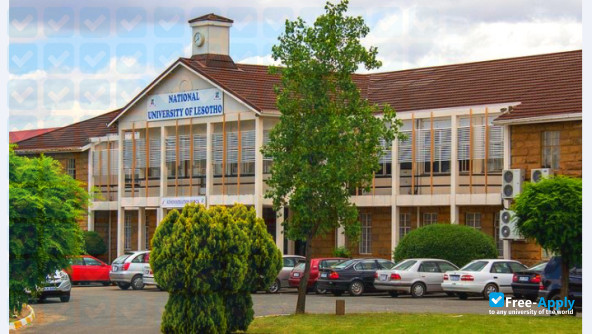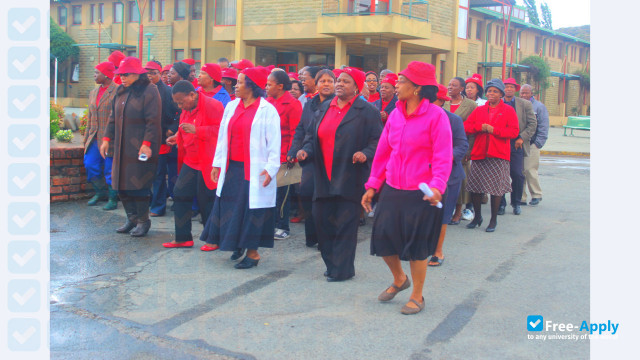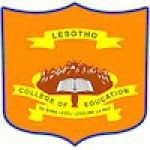About the university
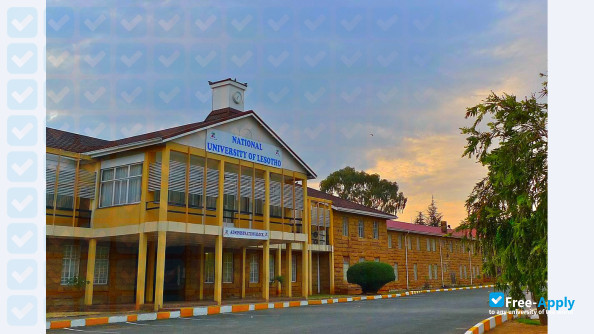
The origins of the National University of Lesotho go back to April 8, 1945, when a Catholic University College was founded at Roma by the Roman Catholic Hierarchy of Southern Africa. The establishment of this College was a realization of a decision taken in 1938 by the Synod of Catholic Bishops in South Africa to provide African Catholic students with post-matriculation and religious guidance. The Catholic University College was founded in an isolated valley 34 kilometers from Maseru in a temporary primary school building at Roma Mission. In 1946 the College moved from the temporary building to the present site. This was made possible by the allocation of some 52 acres of land to the College by the Paramount Chief. In 1950, the Catholic University College was ceded to the Congregation of Oblates of Mary Immaculate (OMI). Pius XII College prepared its students for the external degrees of the University of South Africa (UNISA). By September 27 1954, having satisfied itself that Pius XII College was an academically viable Institution, UNISA agreed to enter into a formal agreement - thereby granting an "Associate College" status to the College. This development was of major significance to the Roma intellectual community as it entailed a certain degree of "decentralization" in certain specific areas on the part of UNISA, e.g. Pius XII College assumed greater responsibility for tuition and examinations. Indeed, between 1954-60, both the academic and physical growth of the College accelerated. Fathers Beaulé, Quirion, and Guilbeault (then Rector) participated actively in the early development of the college. In the early 60s the College experienced difficulties academically and financially. UNISA unilaterally decided to redefine its relationship with the College and, finally, the main benefactor of the College directed its resources elsewhere. The denominational character of the College had made it difficult for international organizations, agencies, and foundations to fund such an institution of higher learning. Despite these problems, advice received from Sir John Lockwood and Sir James Cook, both Vice-Chancellors' of British universities at the time, discouraged the College authorities from seeking an affiliation with either the University of London, or for that matter, any other overseas University. As early as 1952, attempts by the college to secure a special relationship with the University of London, through the Inter-University Council for Higher Education Overseas (Commonly referred to as the I-VC) had been 'unsuccessful.
Education programs
Agriculture
Agriculture
Bachelor of Agriculture
English
Language of instructions
Full-time
Study mode
$530
Fee for international students
$530
Fee for domestic students
Arts
~ $530 / year
Arts
Bachelor of Arts
English
Language of instructions
Full-time
Study mode
$530
Fee for international students
$530
Fee for domestic students
Biology
~ $530 / year
Biology
Bachelor of Biological
English
Language of instructions
Full-time
Study mode
$530
Fee for international students
$530
Fee for domestic students
Culturology
~ $530 / year
Culturology
Bachelor of Culturology
English
Language of instructions
Full-time
Study mode
$530
Fee for international students
$530
Fee for domestic students
Education and Teaching
~ $530 / year
Education and Teaching
Bachelor of Education
English
Language of instructions
Full-time
Study mode
$530
Fee for international students
$530
Fee for domestic students
Health
~ $530 / year
Health
Bachelor of Health
English
Language of instructions
Full-time
Study mode
$530
Fee for international students
$530
Fee for domestic students
Hospitality
~ $530 / year
Hospitality
Bachelor of Hospitality
English
Language of instructions
Full-time
Study mode
$530
Fee for international students
$530
Fee for domestic students
Humanities
~ $530 / year
Humanities
Bachelor of Humanities
English
Language of instructions
Full-time
Study mode
$530
Fee for international students
$530
Fee for domestic students
Law and Jurisprudence
~ $530 / year
Law and Jurisprudence
Bachelor of Law & Jurisprudence
English
Language of instructions
Full-time
Study mode
$530
Fee for international students
$530
Fee for domestic students
Mathematics
~ $530 / year
Mathematics
Bachelor of Mathematics
English
Language of instructions
Full-time
Study mode
$530
Fee for international students
$530
Fee for domestic students
Nursing
~ $530 / year
Nursing
Bachelor of Nursing
English
Language of instructions
Full-time
Study mode
$530
Fee for international students
$530
Fee for domestic students
Pharmacy
~ $530 / year
Pharmacy
Bachelor of Pharmacy
English
Language of instructions
Full-time
Study mode
$530
Fee for international students
$530
Fee for domestic students
Philosophy
~ $530 / year
Philosophy
Bachelor of Philosophy
English
Language of instructions
Full-time
Study mode
$530
Fee for international students
$530
Fee for domestic students
Physics
~ $530 / year
Physics
Bachelor of Physics
English
Language of instructions
Full-time
Study mode
$530
Fee for international students
$530
Fee for domestic students
Sociology
~ $530 / year
Sociology
Bachelor of Sociology
English
Language of instructions
Full-time
Study mode
$530
Fee for international students
$530
Fee for domestic students
How to apply to the university
Choose a program
Press “Apply now” button
Send an application form
Complete admissions tasks
Go to study
To apply to National University of Lesotho follow these steps. To get more information about the university and the admissions process, you can use the live chat to contact a university representative.
Required documents for admission
When applying for admission to National University of Lesotho in Lesotho you should prepare all required documents. Request a list of necessary documents directly from a university, as it may vary for different countries. Using our live chat, you can also ask for sample documents.
- TOEFL Certificate
- Online Application form
- Passport
- IELTS Certificate
Why people choose this university
Contacts
National University of Lesotho
P.O Roma 180, Maseru, Lesotho.
Maseru
Lesotho
Free Apply is not responsible for the content of this page. Through the Site, Free Apply provides an online catalog which you can use to find different types of educational institutions. It’s possible for a new university to be registered by any user, however only verified university representatives will be able to manage, reply in chat and make changes to a university page. Once the University registers its official representative, it has the right to block access for others to edit the information. Further control over the content will be carried out by the representative of the University. Registration with the Free-Apply.com catalog is free.
